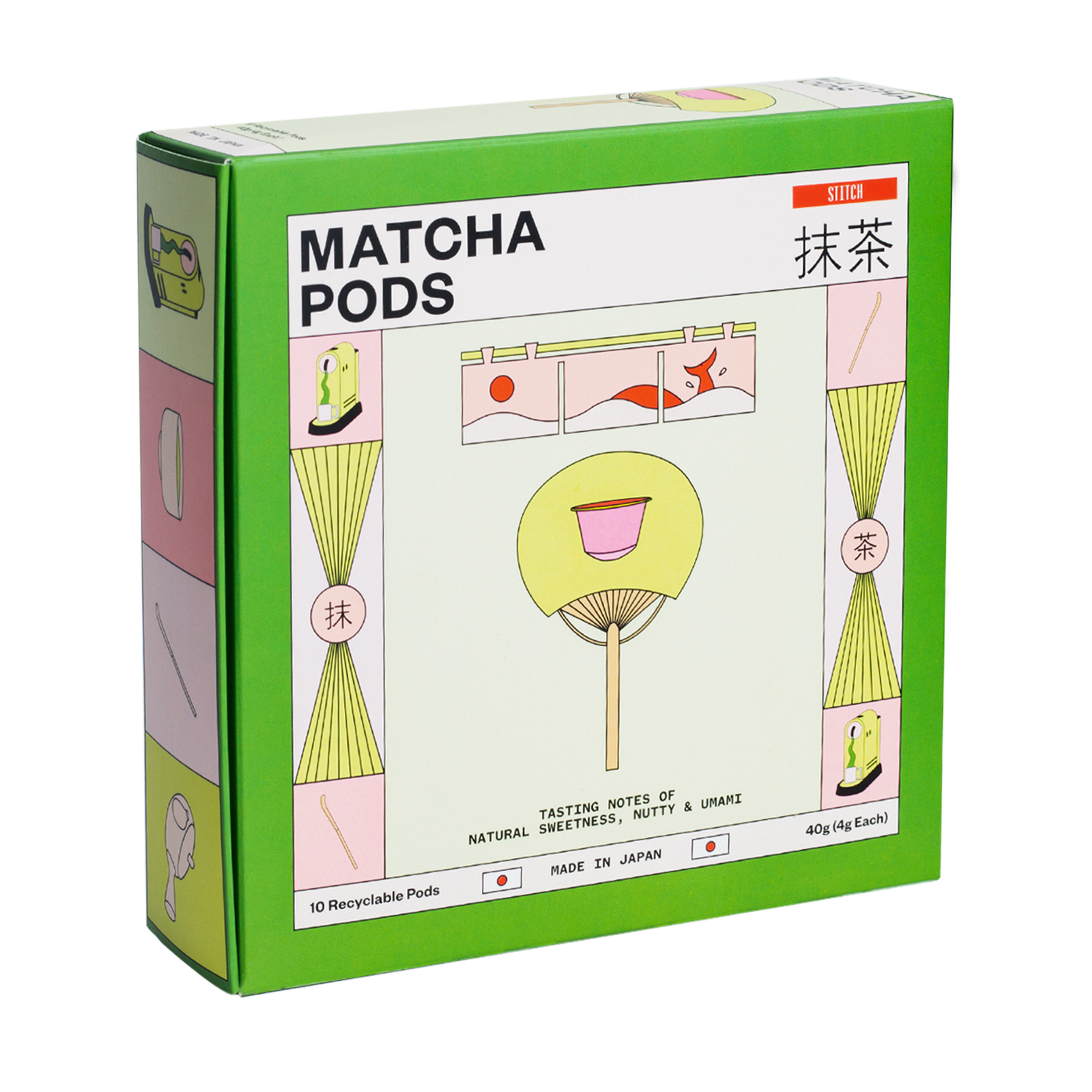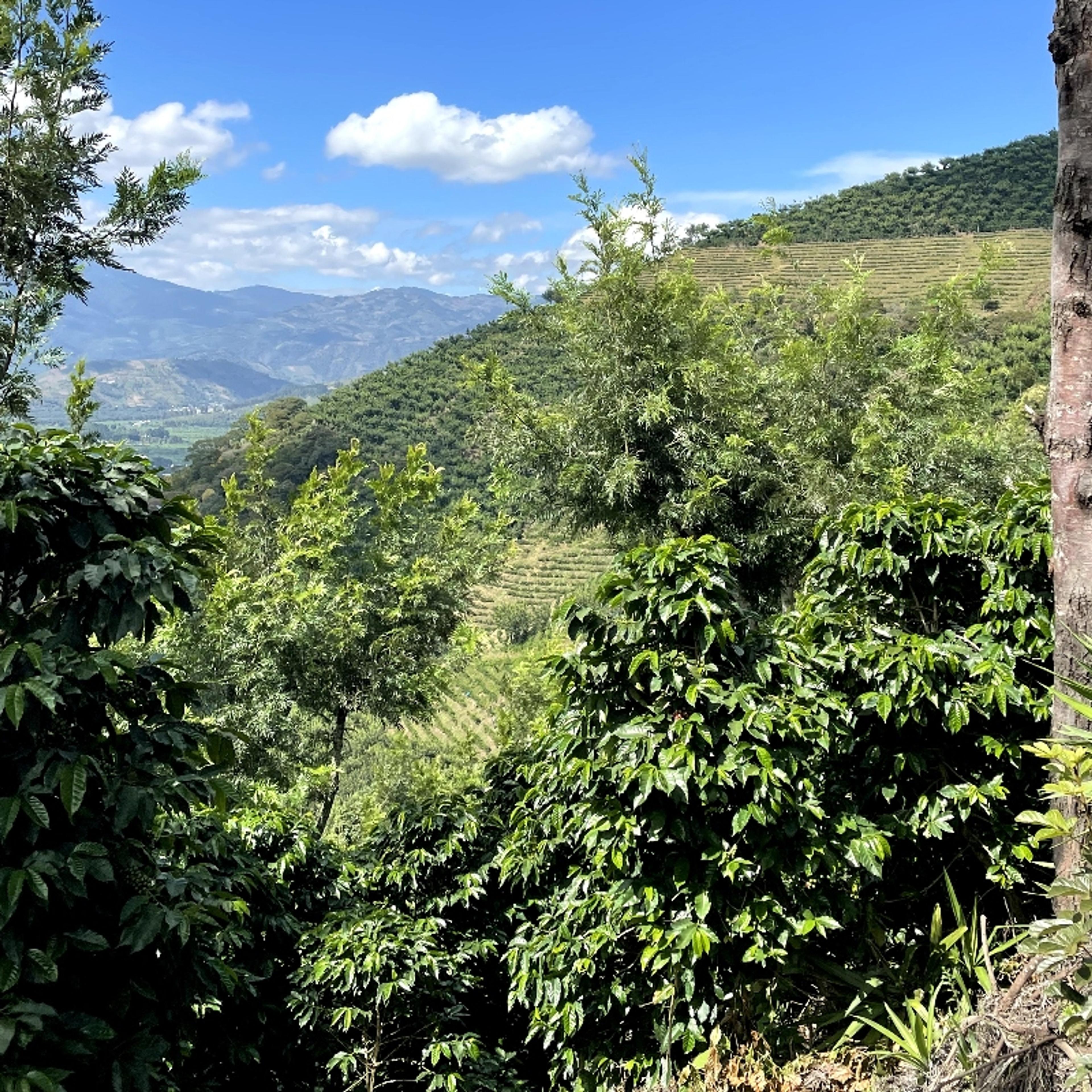Coffee Catch-up with Ricardo Zelaya
Stitch Coffee's Operations and Finance Manager Mac was able to visit the picturesque Santa Clara estate and sit down with producer Ricardo Zelaya ahead of our latest Tiny Tins, Epic Sips release!
Coffee Catch-up with Ricardo Zelaya
“The quality comes from the field, and we strive for each day of production to result in a competitive batch of coffee.”
It's not everyday that one of our own can travel across the ocean and chat to one of a renowned producer face-to-face, but Stitch Coffee's Operations and Finance Manager Mac did just that!
In November 2023, Mac travelled to Guatemala, where she was honoured to meet producer Ricardo Zelaya and his team at Santa Clara Estate. This is the farm behind our delicious Malawi geisha (natural) and Malawi geisha (washed), and we've been privileged to source from for the past six years.
Thanks to Mac, we were able to catch up with Ricardo to chat geisha coffee, favourite processing methods, and the secret behind how Santa Clara is able to win so many awards! Keep reading to find out more.
COFFEE CATCH-UP WITH RICARDO
We hear that the Zelaya family has been producing coffee for more than 100 years! How did your farm first come to be and how has it been able to continue its coffee-producing legacy for the past century?
The history of Finca Santa Clara dates back to the early twentieth century when my great-grandfather, Luis Pedro Aguirre Mateu, purchased Santa Clara in 1947 through an unexpected deal in a local barbershop. He worked the farm, passing it on to my grandfather, who in turn passed it to my father.
My father continued to work the farm until his passing in 1972 when I was eight years old. At that time, my uncle managed the farm until I graduated from university. Taking over the farm in 1988 at the age of 24, I recognised its great potential for cultivation. With the collaboration of an exceptional team, we have shaped it into what it is today.
Your farm has participated in 14 Cup of Excellence awards and won eight times! What is it that your team is doing with coffee that makes the cups stand out in prestigious competitions like this one?
The quality comes from the field, and we strive for each day of production to result in a competitive batch of coffee. We are very strict in the picking process and have a group of highly skilled pickers who are familiar with the farm and pick very well. The processing is done following all the protocols we have in place. We aim for each day to yield a competitive batch.
We were impressed to hear that the Santa Clara farm has its own on-site lab that was recently upgraded and is run by a dedicated QC [quality control] team. When did that part of the business begin and how has it contributed to the overall improvement of the farm’s coffee output?
We opened the first laboratory 10 years ago. We used to conduct quality control with Q graders off the farm, but setting up our own laboratory and testing our coffees every day helped us detect problems and identify things we were doing well. It helped us get to know our coffee much better.
And it's quite gratifying because one works all year to see how the quality of the coffee will turn out throughout the year.
Both of the Santa Clara single origins that we’re featuring in our Tiny Tins, Epic Sips collection consist of geisha cherries harvested off trees that were originally sourced from Malawi. Why did you decide to grow Malawi geisha on the farm as opposed to their more famous counterparts (i.e. Panama geisha)?
It was a coincidence because a friend brought the Malawi seed and didn't know what to do with it, so he gave it to me. And the truth is, we had always wanted to plant Geisha, but we hadn't found any seeds.
This one appeared, we made the seedbed, planted it, and when we tried it, it was of exceptional quality. And now we have Geisha from Panama, Geisha from Costa Rica, and a selection of the Geisha from Malawi that we made ourselves.
This month, Stitch Coffee is presenting customers with two Santa Clara coffees with one key difference: one of the coffee is processed natural while the other is washed. Do you have a preference for one method over the other?
I prefer the traditional method in Guatemala, the washed method, because it brings out the properties of the coffee more. I've trained my palate to enjoy the natural method as we started making that method due to customer demand.
But personally, I prefer the washed process because I feel that the coffee's characteristics come through better, and the fruity notes of the natural method, although very rich in flavour, overshadow the original characteristics of the washed coffee.
When our customers are doing comparative tastings of these two coffees (natural vs. washed), what characteristics or differences in flavour should they be looking for?
Basically, in the natural process, there is the aroma of fruit, a fruity flavour. The fruits that stand out the most are pineapple, strawberry, and tropical fruits. The acidity is pronounced, the body is subdued, and the aftertaste is fruity.
In the washed process, you can taste citrus acidity, chocolate, caramel, creaminess, sweetness, and a good body. There is a prolonged and fine aftertaste. The acidity is reminiscent of grapefruit, lemon, and mandarin. It has many notes of spices and floral.
Last question! How do you best like to brew coffee at home?
At home we brew it in a coffee percolator but I like v60 and french press as well.


















